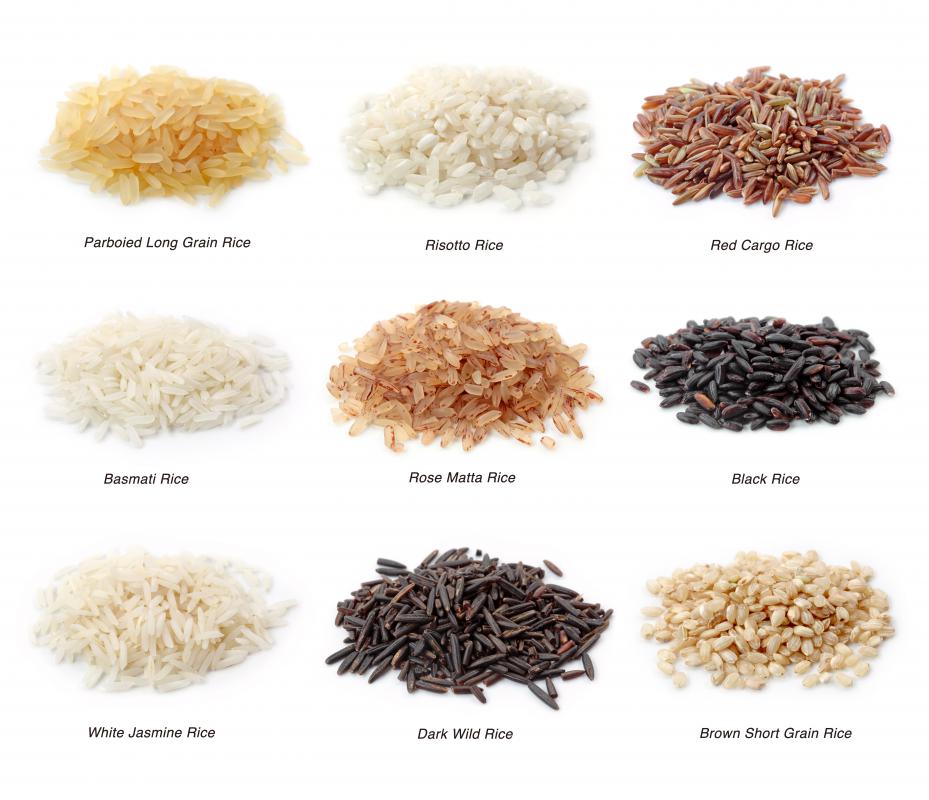At WiseGEEK, we're committed to delivering accurate, trustworthy information. Our expert-authored content is rigorously fact-checked and sourced from credible authorities. Discover how we uphold the highest standards in providing you with reliable knowledge.
Which Factors Led to the Rice Shortage of 2008?
Several factors contributed to the rice shortage of 2008, ranging from decreased rice exports from many Asian nations to extended drought in Australia. All of these factors played out within the larger framework of rising food prices in 2007 and 2008, and the impact of the shortage was felt in various ways around the world.
One of the leading causes of the rice shortage was climate conditions. In Australia, a major producer of rice, an extended drought led to a drastically reduced harvest. In many parts of Asia, flooding destroyed rice fields before the grain could be harvested, reducing the harvest even more. These conditions affected the availability of many specialty types of rice, especially long grain varieties, which tend to be extremely popular.

Land conversion also played a role in the rice shortage. In many Asian nations, farms are being displaced by growing cities, thanks to an ever-expanding human population. Farmers are also encouraged to plant highly profitable crops for export, like corn and soy, reducing the amount of space available to cultivate rice. The decision to cultivate crops for conversion into fuel and animal fodder also played a role.

In Asian nations, rice is a major staple, and increasing demand for rice began to put serious pressure on national agriculture in 2007 in many Asian countries. As rice stocks began to dwindle, some countries like Thailand restricted exports, to ensure that there would be enough rice to feed the citizens, and rice prices climbed in these nations in response to the perceived shortage. As a result, some people were priced out of rice entirely, a major problem in areas where rice can play a huge role in the diet.

Outside of Asia, people began to feel the rice shortage in 2008 in the form of reduced availability of certain specialty Asian rice varieties, like basmati. In fact, there was no shortage of short grain rice varieties, thanks to large plantations in California and the American South, but many consumers prefer long grain rice, for cultural, ethnic, or culinary reasons. As a result, prices for long grain rice climbed in response to consumer demand.

Although restricted supplies of certain rice varieties and generally elevated rice prices were certainly a cause for concern, the larger issue was the overall climb in food prices. 2007 and 2008 saw a dramatic increase in global food prices across the board, not just a rice shortage, increasing food insecurity for people all over the world. Food shortages also tend to lead to political and social instability, creating a potential for food riots and other civil unrest in nations with a large impoverished population, like Haiti.
AS FEATURED ON:
AS FEATURED ON:

















Discussion Comments
The sad thing about food shortages and people starving is that there is more than enough food in the world to feed everyone, but the problem is getting the food to the people who need it. Regardless of what your parents told you when you were a child, eating all of the food on your plate doesn't make a difference one way or the other to starving children in some far away country.
If we don't stop making fuel for cars out of food like corn we are going to have even more shortages of food. We will be talking about the corn shortage next.
I remember the rice shortage of 2008 and 2009. For most people in developed countries the shortage was just an inconvenience. Countries really should do a better job of being self sufficient so they are not depending on other countries to feed them.
It's more than an inconvenience if you are depending on a crop for survival and you learn that a drought in another country means you won't have enough to eat.
We are fortunate that in the U.S. we produce enough food to feed ourselves. It's a shame that farmers don't get the credit and money they deserve for what they do. Where would any of us be without them?
Post your comments